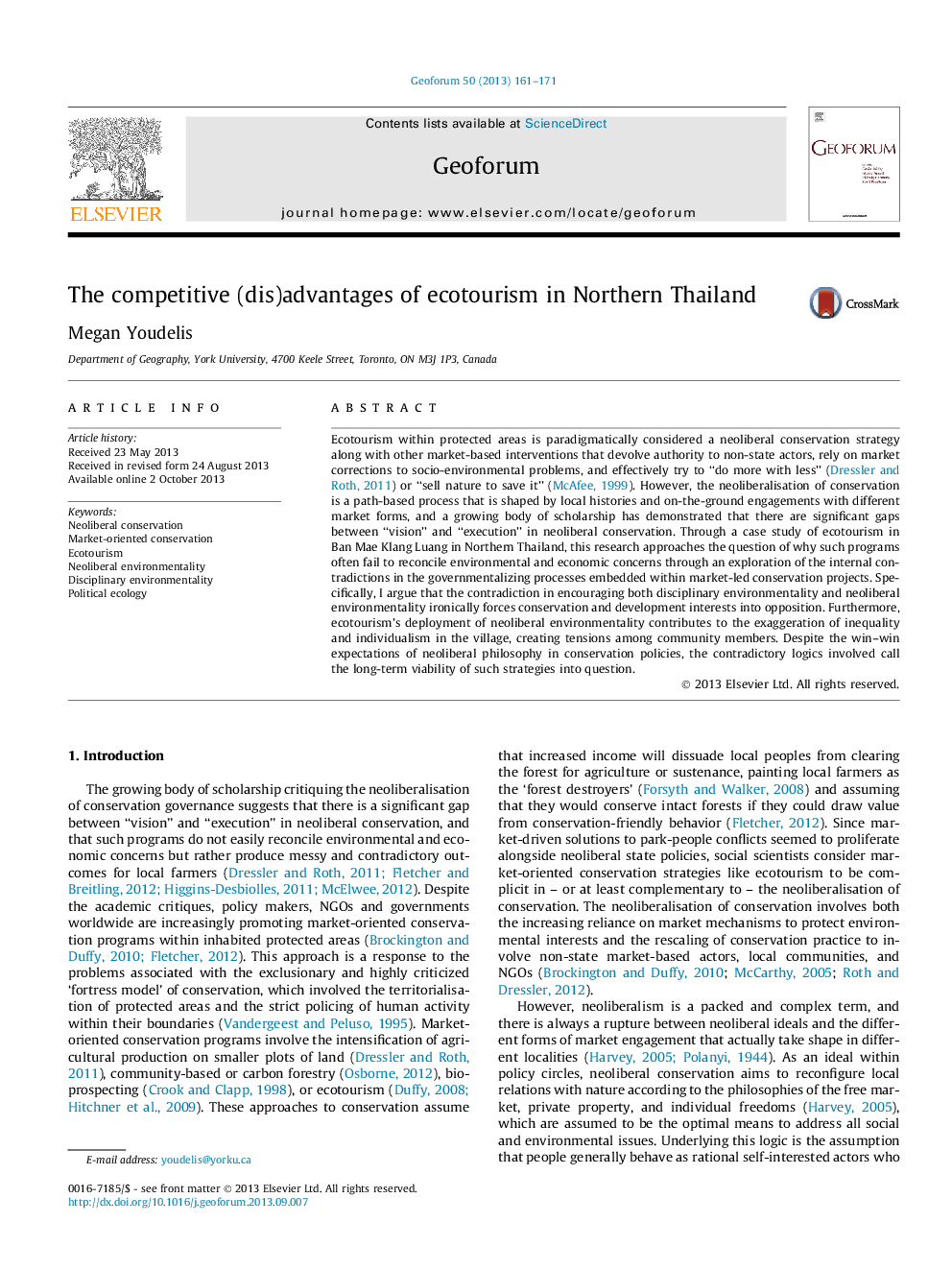| Article ID | Journal | Published Year | Pages | File Type |
|---|---|---|---|---|
| 5074129 | Geoforum | 2017 | 11 Pages |
Abstract
Ecotourism within protected areas is paradigmatically considered a neoliberal conservation strategy along with other market-based interventions that devolve authority to non-state actors, rely on market corrections to socio-environmental problems, and effectively try to “do more with less” (Dressler and Roth, 2011) or “sell nature to save it” (McAfee, 1999). However, the neoliberalisation of conservation is a path-based process that is shaped by local histories and on-the-ground engagements with different market forms, and a growing body of scholarship has demonstrated that there are significant gaps between “vision” and “execution” in neoliberal conservation. Through a case study of ecotourism in Ban Mae Klang Luang in Northern Thailand, this research approaches the question of why such programs often fail to reconcile environmental and economic concerns through an exploration of the internal contradictions in the governmentalizing processes embedded within market-led conservation projects. Specifically, I argue that the contradiction in encouraging both disciplinary environmentality and neoliberal environmentality ironically forces conservation and development interests into opposition. Furthermore, ecotourism's deployment of neoliberal environmentality contributes to the exaggeration of inequality and individualism in the village, creating tensions among community members. Despite the win-win expectations of neoliberal philosophy in conservation policies, the contradictory logics involved call the long-term viability of such strategies into question.
Related Topics
Social Sciences and Humanities
Economics, Econometrics and Finance
Economics and Econometrics
Authors
Megan Youdelis,
